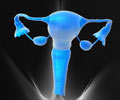To increase the chances of conception to a 100 percent, among couples undergoing fertility treatment, University of Adelaide researchers have come up with a new formula.
To increase the chances of conception to a 100 percent, among couples undergoing fertility treatment, University of Adelaide researchers have come up with a new formula.
They claim that their technique can improve embryo implantation rates significantly, and reduce pregnancy complications in assisted reproductive technology (ART).The researchers say that they have applied it in a study on mice, which provided proof-of-concept that the treatment doubles pregnancy rates.
Associate Professor Claire Roberts, who led the study, has revealed that he has received 294,750 dollars in from the Federal Government for showing that the treatment is safe, and that it improves pregnancy outcome and postnatal health in offspring.
"Assuming our success, the concept will be taken to the next stage in human trials with the help of the University's commercial partner for this technology, MediCult," Roberts says.
The researcher says considers the funding to be a major breakthrough for those couples who are either infertile or suffer from recurrent miscarriages.
"Assisted reproductive technologies provide some hope for these couples, but they have a relatively poor success rate with only 15-40 per cent of embryo transfers resulting in ongoing pregnancies, depending on maternal age," Roberts says.
Advertisement
Existing ART procedures triple the risk of pregnancy complications such as miscarriage, preeclampsia, intrauterine growth restriction and pre-term births, some of which are life-threatening to the mother and/or her baby.
Advertisement
Should the trials prove successful, the researchers will also achieve the "holy grail" of IVF, a single embryo transfer that reduces the incidence of multiple pregnancies in ART, and maximises the chance of a successful pregnancy.
"ART techniques act primarily to facilitate conception, rather than to promote embryo implantation and placentation. Therefore, they do not assist in some forms of infertility and pregnancy complications. We hope this new product will address that," Roberts says.
Source-ANI
KAV/L









